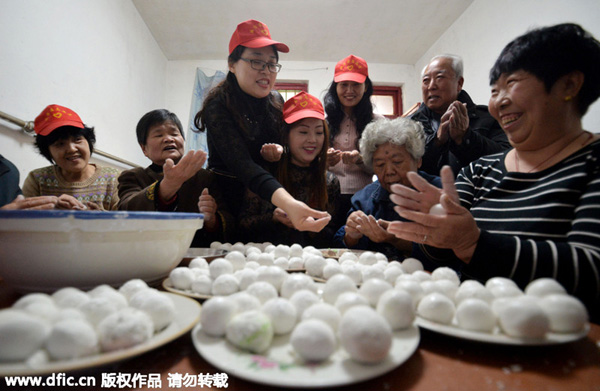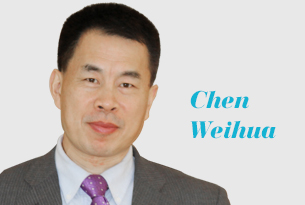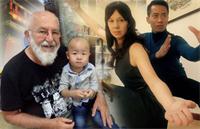Encouraging filial care for aged
(China Daily) Updated: 2016-01-26 07:40
 |
|
Volunteers and empty-nest seniors make Yuan Xiao, a typical food for Lantern Festival, in Handan, Hebei province, March 3, 2015. [Photo/IC] |
Besides concerns over whether decision-makers can resolve the widening gap between the country's pension account and its ageing population, people are also worried about whether the government can provide adequate public care facilities for the elderly.
With China's rapidly aging population, care for the elderly is a problem decision-makers can no longer um and ah over.
It is traditional in China for senior members of a family to be cared for by younger members. But it is now a brutal fact that many couples have no time to look after their elderly parents as both the husband and wife are working. This means they either have to pay someone to look after their parents or rely on public care facilities for the elderly.
However, by the end of 2015, China had more than 6.6 million nursing beds for the elderly, around 30 beds for every 1,000 elderly.
The lack of public facilities and understaffing make it necessary to explore a new model of care services provision for the country's growing elderly population.
Policymakers in Beijing are pushing for a home-based care model for the aged. At a session of Beijing's people's congress on Sunday, the municipal authorities said they are studying the feasibility of paying children to provide care for their elderly parents and pushing for the establishment of a home-based care service model. Such a policy, if adopted and implemented as announced, may prove a useful reference for other regions.
Offering financial compensation to those caring for their elderly relatives will help reduce the economic burden on families and make such care more feasible.
Family care for the elderly will probably also be more welcome to most elderly as it will allow them to feel the affection of their children and grandchildren and thus help them enjoy a happier time in their remaining years.











